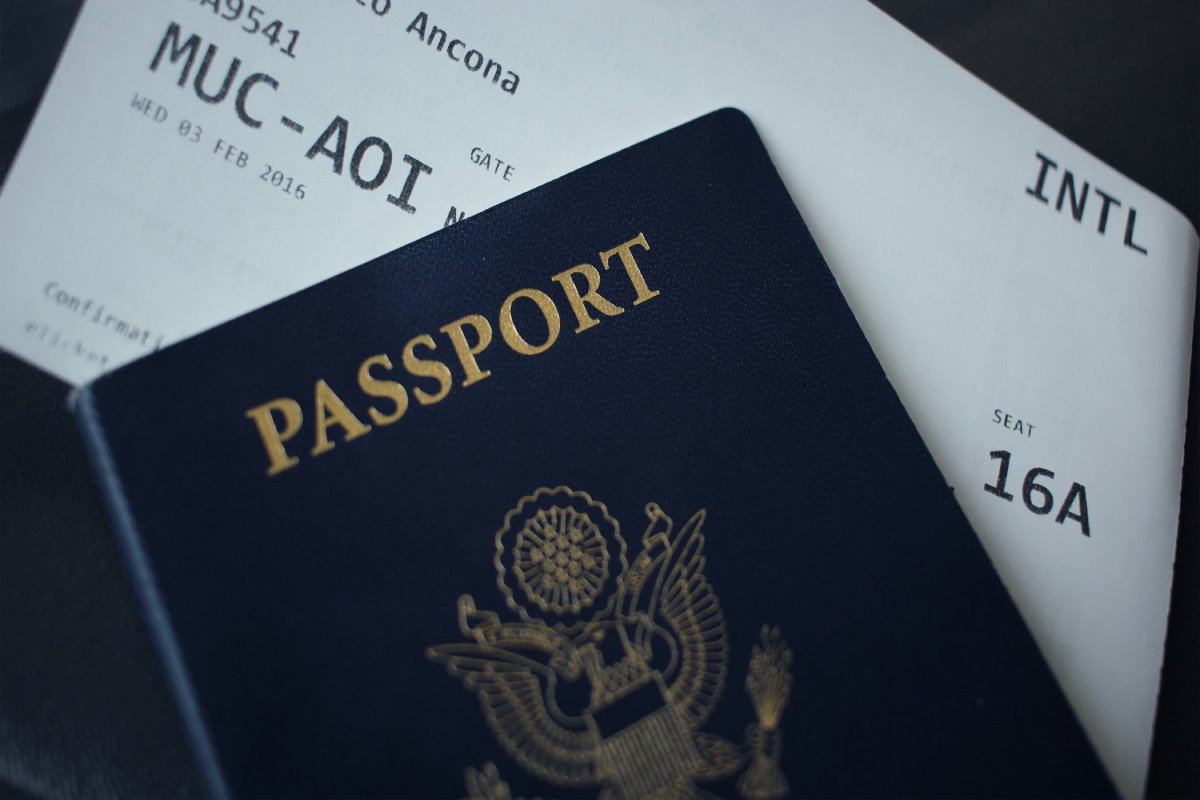Sen. Lautenberg played bare-knuckled politics for transportation issues
Skift Take
What kind of guy and transportation advocate was Frank Lautenberg, the five-term U.S. Senator from New Jersey and liberal icon who died on Monday at age 89?
Lautenberg, who will be buried today, was unpretentious and, for a veteran politician, even strangely awkward at times in the limelight, says Mark Mogel, a Republican and former research director of FlyersRights.org, who worked for years with Lautenberg and other Senators to ultimately turn proposed airline tarmac-delay rules into law in 2011.
Mogel produced an email yesterday from 2007, describing how FlyersRights wanted to draft a press release praising Lautenberg for his support of the three-hour tarmac delay rule.
The hitch was that Senators Barbara Boxer, a California Democrat, and Olympia Snowe, a Maine Republican, had introduced the Airline Passenger Bill of Rights, which included tarmac delay protections, and Lautenberg's office didn't want to step on their toes in terms of publicity.
"Lautenberg didn't want to get in their way or take any of the credit," Mogel says. "Even when he was playing a much larger role in airline passengers' rights in the back rooms of the Senate, in the foreground he made it clear to us that Senators Boxer and Snowe should receive the accompanying public attention and accolades."
A politician, of course
No one should interpret the above anecdote to mean that Lautenberg was some sort of political angel, above all the megalomania that characterizes the antics of many politicians.
He died of viral pneumonia on June 3, and up until February, when he ruled it out, there was much speculation that Lautenberg might even seek a sixth term in the Senate.
That would have been a lot of chutzpah for an 89 year old, given the rigors of the office.
Although Lautenberg had his quirks, Mogel says the senator was "a real guy."
"I met a lot of senators and congressmen/women during my stint with FlyersRights, and I got a feel for the posers versus the real people," Mogel says. "And keep in mind that I’m a Republican. Lautenberg was the kind of guy you felt like you could go out and have a beer with and be friends."
Speaking of friends, organized labor and mass transit advocates usually counted Lautenberg, a multimillionaire, as one of their own, although most airlines were appalled about his push for airline passengers' rights legislation.
Air traffic controllers
Fiscal and social conservatives, for sure, found Lautenberg to be a stubborn opponent on many transportation-related issues.
For example, In 1988, seven years after the Reagan administration broke the Professional Air Traffic Controllers Organization national strike and got all of the unionized controllers fired, Lautenberg pushed to get them rehired.
Lautenberg earned a 96% lifetime rating for his voting record from the AFL-CIO. During his reelection campaign in 1988, he expressed empathy for the uprooted air traffic controllers, but also thought rehiring them would enhance aviation safety because it would be faster than having to train a new crop of employees from scratch to staff airport control towers.
"I talk to people," a 1988 story posted on Philly.com quotes Lautenberg as saying. "Morale is horrible. I don't want to reward them [the fired controllers]. I want to reward the flying public."
Maybe that was just spin, though, so he could advocate getting the unionized men and women in the air traffic control towers back in their rightful perches.
So many committees and causes
Lautenberg, who served on four Commerce, Science and Transportation subcommittees, including aviation operations and surface transportation, helped save Amtrak from budget hawks; supported tarmac delay protections for airline passengers; was instrumental in upping transportation spending for mass transportation and other infrastructure improvements; succeeded in getting stricter limits on drinking and driving, and managed to get smoking banned from airplanes, among many transportation-related accomplishments.
The New Jersey Transit train station in Secaucus, New Jersey, is named after Lautenberg, a tribute to his advocacy for federal funds to support a rail project that produced better connections to New York City.
Lautenberg was the last member of the Senate who served in World War II, and he made his fortune as chairman and CEO of Automatic Data Processing before running for office.
Still, despite his wealth, Lautenberg fought for the labor rights of air traffic controllers, and it might have been considered a sweet spot for the senator, given his lifelong advocacy on behalf of both unions and transportation issues.
Opposed privatization
In addition to seeking the rehiring of the fired PATCO workers in 1988, Lautenberg helped head off Bush administration attempts in 2003 to privatize the nation's air traffic controllers, who are federal employees represented by the National Air Traffic Controllers Association.
Meanwhile, in the days leading up to Lautenberg's funeral today, tributes have been pouring in from organizations including NACTA, Amtrak, Mothers Against Drunk Driving, and Lautenberg's senate colleagues.
“NATCA has been proud and honored to have worked with Senator Lautenberg throughout our 26-year history on so many issues critical to aviation safety,” NATCA President Paul Rinaldi said. “He will always have a special place in the memories of the air traffic controllers and safety professionals represented by NATCA as someone who fought hard for them and their rights. His work through legislation and Congressional hearings helped make our National Airspace System the world’s safest and most efficient.”
Fellow Democrat Chuck Schumer, the New York Senator, also offered some remembrances.
"Our transportation system in the Northeast and the nation would not be as up-to-date and efficient were it not for Frank," Schumer said. "And countless people are alive today because of his fight against smoking and Big Tobacco. He was a relentless warrior for common sense gun safety legislation, and so much more. The list of his accomplishments would take many pages.
"Frank was a close and loyal friend who never put on airs and said what he thought, when he thought it. And he had one of the most endearing senses of humor ever possessed by any public servant. We knew he was ill, but his passing is still a gut shot to those of us who knew and loved him. I am a better person for having known him and America is a better place for having benefitted from his long and rich service."




